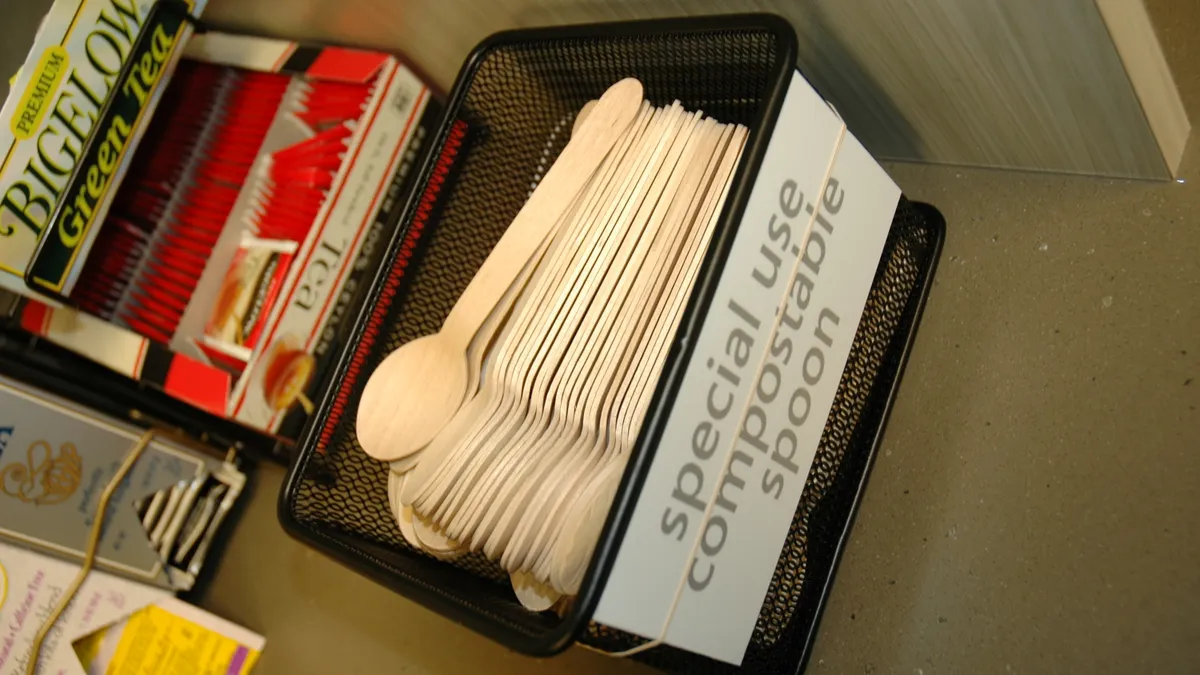Editor's Note: The following is a contributed piece. More information on what that entails and how you can submit is available here.
Food service ware options have faced increasing scrutiny in recent years due to greater awareness of the environmental effects of single-use plastics and other materials — and companies and municipalities are accordingly searching for alternatives. Compostable items have been identified as one solution — but they've starting to receive pushback from some organics recyclers.
The organics recycling industry must face these challenges — and opportunities — head on in order to maximize diversion of organics from landfills.
An important part of that process is achieving a better understanding of food service operators' needs. They have many obstacles to navigate when it comes to assessing compostable packaging, including a confusing regulatory landscape, performance capabilities and budgetary factors.
Companies that give out "disposable" items are confronting hundreds of different regulations across dozens of states banning items such as plastic straws, polystyrene foam and or plastic bags. Other municipalities mandate that all food service ware must be recyclable, compostable or even marine biodegradable.
Businesses need assurance that compostable food service ware will be well-received by consumers and fit within any regulatory framework. Changes could affect food quality and presentation, impacting, in turn, customer experience. Altering or eliminating iconic packaging items could also alter brand perception. Luckily, certified compostable food service ware does meet regulatory requirements across most of North America.
Price is also a constant factor in any business decision. While most certified compostable food service items are cost-competitive, many providers will admit that certain items come with a cost increase. The cost of arranging for separate collection of organics on top of municipal solid waste (MSW) and single-stream recycling (SSR) can sometimes be offset by reducing the MSW service — but it can also be an added cost for generators.
Closing the loop is a challenge because most businesses that transition to compostable food service ware want to ensure that the material is diverted from disposal. There remains a disconnect between the single-use items on which most companies serve their food and the recovery systems that provide a beneficial end use for these materials.
In many cases, recyclable food service items aren't recycled due to contamination or because they are coated in food waste, which lowers the value. Unless a full conversion to compostable packaging is done with appropriate signage and staff trainings, these can be constant concerns.
Even when organics recycling programs are available and material is relatively clean, these products don't always have a clear path.
First, not all composters accept compostable food service ware. Second, anaerobic digestion (AD), animal feed and other organics recycling options aren't typically designed to handle certified compostable products. Many organics processors send their materials through a de-packager, which kicks out food service ware as residue for disposal. Most animal feed programs do not accept post-consumer material, which often contains meat products and contamination. Even when they do accept it, compostable packaging materials aren't usually on the list. In addition, many on-site pretreatment solutions do not accept compostable foodservice ware.
With regulatory requirements evolving and companies increasingly willing to address existing challenges, certified compostable food service ware can be as a viable option. The solution should involve collaboration between food service operators, the compostable food service ware industry and the composting industry in order to ensure that infrastructure is developed, prices decrease and more recyclers accept compostable foodservice ware.
Ryan Cooper is a waste diversion manager and organics recycling lead at Rubicon Global — a technology company rooted in the world of waste and recycling, with a mission to end waste.














